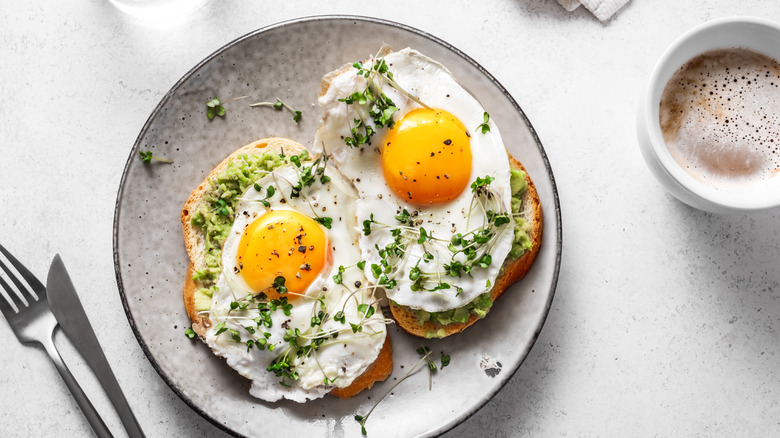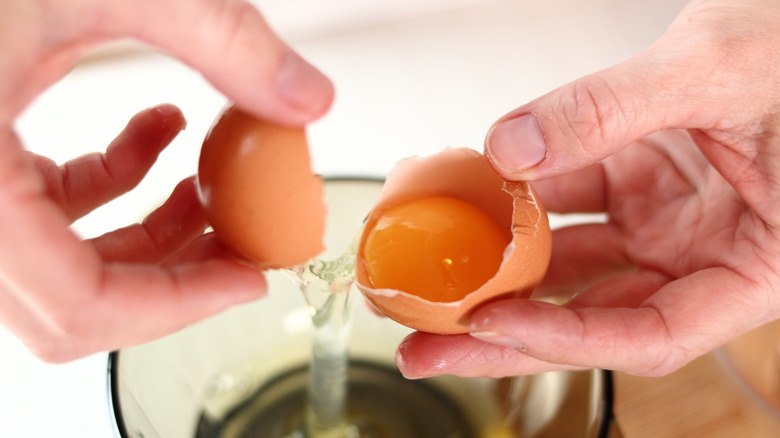The 2-Day Egg Preparation That Yields The Richest Yolks
For all we see of eggs, you would think that you've done just about everything there is left to do with an egg. You've boiled them, fried them, scrambled them, and even used them as a binding agent for your breaded foods. So what could possibly be left?
Well, according to The Kitchn, Chef Michael Gallina has been using a curiously simple process to turn his egg yolks from just creamy to some perfect heavenly equilibrium between solid and fluid: Chef Gallina's Winslow's Table in St. Louis freezes their eggs before frying them. Apparently, freezing the eggs firms up the yolks and preserves the whites. So after freezing a carton of eggs for up to 48 hours and then letting them thaw overnight in the refrigerator, the resulting egg yolk fries just as a normal egg would, but this time with a denser egg yolk that chef Gallina calls "egg butter."
What the freezer does for your eggs
According to the U.S. Department of Agriculture, eggshells are hosts for salmonella and other potentially dangerous bacteria, and, unfortunately, this makes the risks involved with freezing your eggs quite high. Typically when frozen, the egg inside the shell will expand, causing the shells to crack and for the outside of the shells to come into contact with the inside of the egg, contaminating it. If your frozen egg has cracked, do not consume it.
There are, however, ways of safely preparing a whole frozen egg. Healthline suggests avoiding the shells altogether and freezing the egg yolks separately after whisking, although this may not be what you're looking for. If you want to serve up some next-level fried eggs you'll have to carefully examine which of your frozen eggshells are cracked and which have remained whole. These yolks are good but not good enough to risk getting sick.

